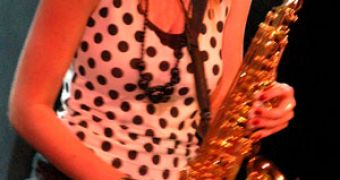We know that the music you prefer tells a lot about you. A recent Dutch research has found that those amateurs of hit parade music, hip hop and R&B, appeared to be more polite and more extroverted, while rockers, on average, were more introverted, sloppier, but more open-minded to different experiences. Those who love classical music were nicer, more precise persons, not refusing new experiences, but less likely to be stable partners.
But there's more. A new Finnish research published in the journal "Brain" shows that music improves recovery of memory and attention skills in the case of stroke patients. The 60 patients were assigned to groups that listened music for a couple of hours daily, others that listened only to audio books, or nothing at all.
"Music could be particularly valuable for patients not yet ready for other forms of rehabilitation," said lead researcher Teppo Sarkamo, from the University of Helsinki.
It also had the advantage of being cheap and easy-to-conduct.
The subjects were involved in the research as soon as they were admitted to hospital, in order to test the music therapy before brain changes in the aftermath of a stroke occurred. Most subjects experienced movement and cognitive (attention and memory) impairment.
Those in the music group chose their preferred music and all patients followed standard stroke rehabilitation. 3 months later, verbal memory recovered by 60% in the music group, compared to18% in the audio book group, and 29% in the non-listeners. Focused attention had recovered by 17% in the music group, while it showed no improvement in the other two categories. The music group patients also displayed lower levels of depression or confusion.
"Other research has shown that during the first weeks and months after stroke, the patients typically spend about 75% of their time each day in non-therapeutic activities, mostly in their rooms, inactive and without interaction, even although this time-window is ideal for rehabilitative training from the point of view of brain plasticity. Our research shows for the first time that listening to music during this crucial period can enhance cognitive recovery and prevent negative mood, and it has the advantage that it is cheap and easy to organize," said Sarkamo.
"However, further work is needed to confirm the study, and it should not be assumed that music therapy would work all patients. Rather than an alternative, music listening should be considered as an addition to other active forms of therapy, such as speech therapy or neuropsychological rehabilitation," he added.
The team could not say whether music directly boosted recovery in the stroke damaged brain areas or improved more general brain mechanisms of recovering neural networks after damage. The results could also be connected to the effect of the music on the brain nuclei involved in feelings of pleasure, reward and memory.

 14 DAY TRIAL //
14 DAY TRIAL //